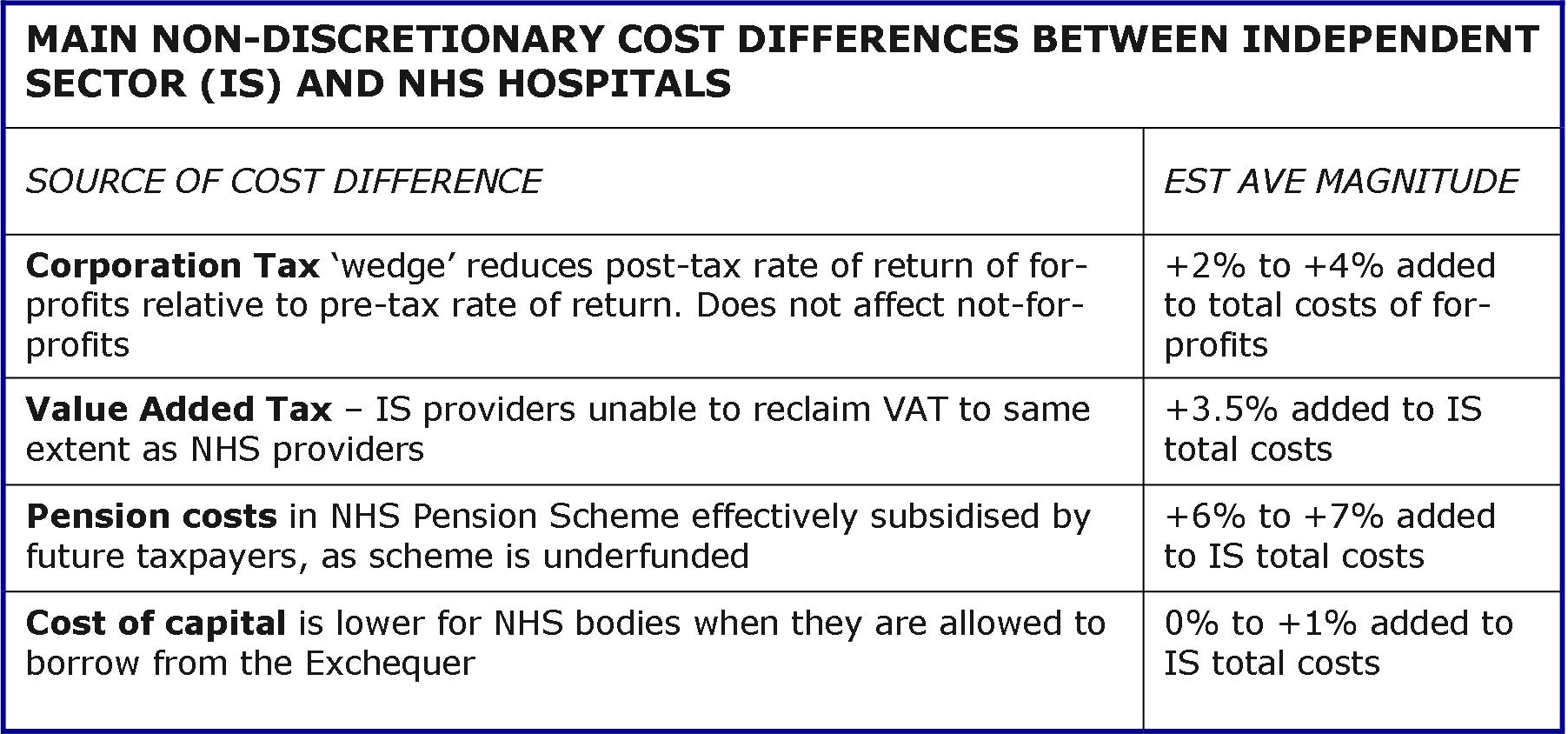Unlocking the Value of Combination Therapies



Competition within the NHS for non-emergency hospital care no longer adjusts for non-discretionary costs unique to independent providers. Should it? Jon Sussex Since 2002, the UK government has actively promoted competition for the provision of non-emergency hospital care to…

Competition within the NHS for non-emergency hospital care no longer adjusts for non-discretionary costs unique to independent providers. Should it?
Since 2002, the UK government has actively promoted competition for the provision of non-emergency hospital care to publicly-funded patients in England. In contrast to the health care competition introduced into the National Health Service under the Conservative government in the early 1990s, however, the purpose is not to directly affect the price of health care. Rather, it is intended to improve health care access and quality for patients. Prices now are fixed by the government, not arrived at through local trading.
Much more emphasis has been given since 2002 to competition between NHS hospitals and independent hospitals and Independent Sector Treatment Centres (ISTCs). In a recent OHE Briefing, Jon Sussex clearly and thoroughly examines non-discretionary cost differences between public and independent providers that may have a serious impact on the effectiveness of such competition. He identifies four key cost differences between the ISTCs and NHS hospitals, summarized in the box.

The policy of competition from the independent sector has met barriers along the way. Potential NHS commissioners of hospital care remain reluctant to increase reliance on the independent sector. The implementation of ISTCs serving NHS patients was only achieved advantageous financial terms offered by the government to stimulate market entry. No further such ISTC procurements are planned. As a result, the extent of independent sector competition with NHS hospitals will increasingly depend on attracting patients under the policy of free choice of hospital for non-emergency care. Non-discretionary cost differences that leave the ISTCs at a cost disadvantage in the order of 12-15% compared to NHS hospitals then becomes an issue. Although this may not be enough to cause a significant number of ISTCs to withdraw from the market, it is not entirely clear what effect such uneven competition will have. Will ISTCs remain competitive enough to continue to encourage efficiency and improve quality in the NHS?
Should measures be taken specifically to ensure ‘fairness’? If so, what are the options? One might be to compensate by increasing funding by x% for independent sector hospitals and treatment centres. Other options include measures to reduce or remove the causes of non-discretionary cost difference by changing pension schemes, corporation taxes and VAT arrangements. Since such changes could have implications well outside the health care sector, the answers are neither clear nor simple.
Download Sussex, J. (2009) How fair? Competition between independent and NHS providers to supply non-emergency hospital care to NHS patient in England. OHE Briefing. (50). London: Office of Health Economics.
An error has occurred, please try again later.
This website uses cookies so that we can provide you with the best user experience possible. Cookie information is stored in your browser and performs functions such as recognising you when you return to our website and helping our team to understand which sections of the website you find most interesting and useful.
Strictly Necessary Cookie should be enabled at all times so that we can save your preferences for cookie settings.
If you disable this cookie, we will not be able to save your preferences. This means that every time you visit this website you will need to enable or disable cookies again.
This website uses Google Analytics to collect anonymous information such as the number of visitors to the site, and the most popular pages.
Keeping this cookie enabled helps us to improve our website.
Please enable Strictly Necessary Cookies first so that we can save your preferences!